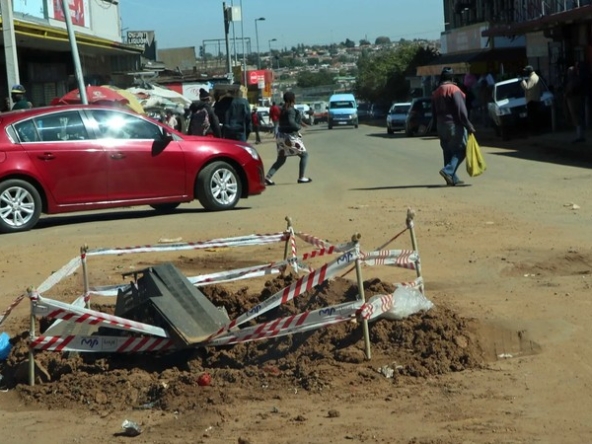Cape Town – The City of Cape Town has shared the increases that will reflect on the municipal accounts of ratepayers later in July onwards after the new rates and tariffs came into effect on Monday.
The City said that the annual increases will be reflected on City customers’ municipal accounts only later in the July billing cycles and onwards.
It is thus important to reduce usage so as to reduce costs where possible, it said.
Mayco member for finance Siseko Mbandezi said rates and tariffs are used to enable basic services and for future-proofing for water and energy security and what Cape Town needs.
“The City has been able to reduce Eskom’s 12.74% increase to 11.78% and offer protection for lower-income customers on the subsidised Lifeline tariff while still funding R4 billion in electricity grid upgrades and plans to end sole reliance on expensive Eskom power as soon as possible.
“The City spends more than 70% of its electricity tariff income to buy electricity from Eskom, with the City’s 2024/25 tariff based on a cost of supply submission to Nersa.
“As always, this time of the year, we advise our customers to be mindful of the context: in winter we use more electricity and this combined with the annual increase increases household costs,” Mbandezi said.
“To shield households using more, especially in winter, Lifeline customers will pay 44% less (R1.89 less per unit) when using over 600 units.
“Last year, Cape Town raised the number of units that can be bought at a cheaper, subsidised rate, from 350 to 600 units per month.”
Mbandezi said that due to these changes, Lifeline customers using 600 units in a month “will still pay R113.94 less” compared with two years ago in 2022/23.
“Now you can also buy cheaper units after 600-unit usage, provided you stay within the 450-unit monthly average over 12 months to remain on the Lifeline tariff.
“The best way to reduce costs is to reduce usage. For instance, turn the geyser temperature down to 60ºC or put your geyser on a timer. Furthermore, buying electricity in bulk is not cheaper.
“Buy only what you need in a given month. When buying in bulk, you move onto a higher tariff block, which is more expensive,” said Mbandezi.
Opposition parties in council have previously voiced their concerns over the allocation of funds in Cape Town’s infrastructure budget, accusing the City of adopting an anti-poor stance.
Rates and tariffs from July 1, 2024
- Property rates increase: 5.7% (for shared services such as clinics, fire services)
- Eskom-driven electricity increase: 11.78% (City) (12.74% Eskom)
- Water and sanitation increase: 6.8%
- Refuse removal increase: 5.7%
For 2024/25, Cape Town’s social package includes:
- free water allocation, at 15kl monthly
- qualifying criteria for a 100% rates rebate, at R450 000 property value, or R7 500 monthly income
- qualifying criteria for Lifeline electricity, at R500 000 property value, R7 500 monthly income
- For pensioners – rebate and Lifeline electricity criteria, at R22 000 monthly income, regardless of property value.
Mbandezi added: “Cape Town has some of South Africa’s most inclusive assistance for rates and tariff relief. We further offer among the lowest property rates for commercial, industrial, and residential properties*.”
Residential electricity tariffs (VAT included)
Lifeline customers
- 0 – 600kWh = R2.37 per kWh
- 600,1+ kWh = R2.37 per kWh
Domestic customers
- 0 – 600kWh = R3.91 per kWh
- 600,1+ kWh = R4.75 per kWh
Home user customers (credit and prepaid):
- Service Charge R281.78 per month
- 0 – 600kWh = R3.44 per kWh
- 600.1+ kWh = R4.75 per kWh
About 30% of households receive free basic electricity.
Water Tariffs
Water-wise (no restriction) Domestic (VAT included)
- 0 – 6kl = R22.52 per kl (1 000 litres)
- 6 – 10.5kl = R30.96 per kl
- 10.5 – 35kl = R42.07 per kl
- More than 35kl = R77.63 per kl
The cost of providing the water service remains largely the same regardless of how much or how little water is in the dams.
Water fixed charge:
This is part of the total water tariff: 15mm connection (most common): R87.29 (including VAT). Registered indigent households do not pay the fixed basic charge.
About 40% of registered indigent households in Cape Town get an allocation of water free of charge.
Sanitation tariffs: Water-wise (NO RESTRICTION) – DOMESTIC (VAT INCLUDED)
Safe removal of wastewater from properties
- 0 – 4.2kl = R19.80 per kl (1 000 litres)
- 4.2 – 7.35kl = R27.20 per kl
- 7.35 – 24.5kl = R38.20 per kl
- 24.5 – 35kl = R60.09 per kl
Refuse (VAT included)
Monthly refuse charge for a 240-litre bin weekly collection: R191.20.
If customers do not have the ability to pay, contact the City to find out what help is on offer. Phone 0860 103 089 or visit your nearest municipal office for advice.
(*Based on an analysis of the cent-in-rand rates published in the 2024/25 draft budgets of each metro accurate at the time.)
Cape Argus

